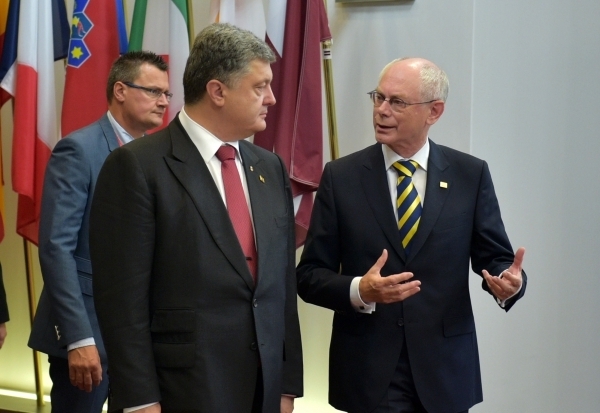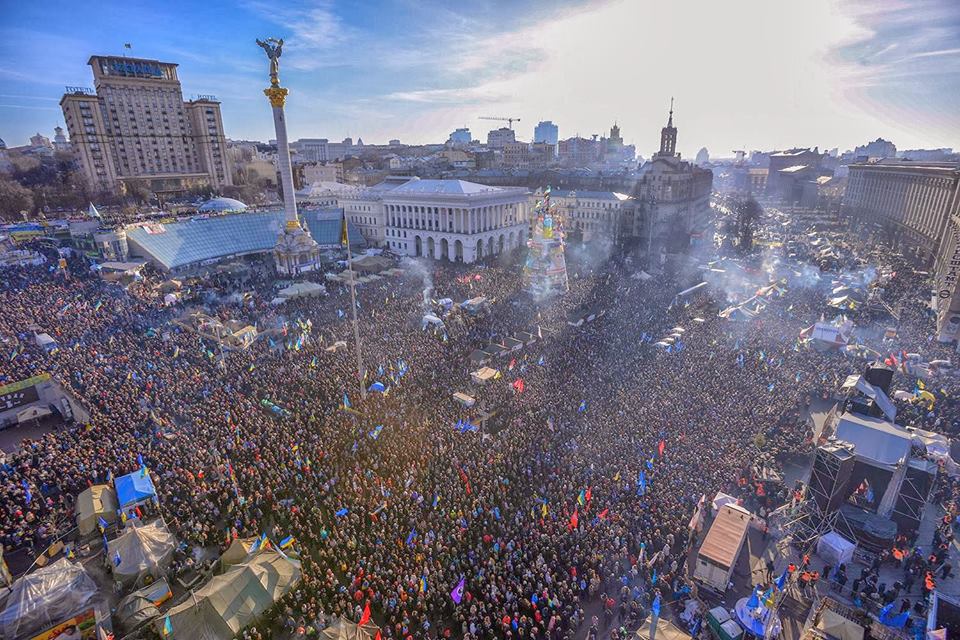Denys Zakiyanov
EU leaders ordered new sanctions to be prepared against Moscow
Ukrainian President Petro Poroshenko was the central figure at the European summit that was held last weekend in Brussels. His speech made European leaders become more active in their search for the solution for the Ukrainian conflict.
The Ukrainian President had been invited to speak at the summit between 28 European Union states, which primarily had been meant to reelect the finance sector leaders.
Instead of Herman Van Rompuy, Polish Prime Minister Donald Tusk was appointed Chairman of the EU Council, and baroness Catherine Ashton was replaced as head EU representative for foreign affairs and security policy by the head of the Italian MFA Federico Mogerini.
Petro Poroshenko’s speech once more focused the Europeans’ attention on Ukraine’s problems. In Brussels, he expressed two powerful theses which were repeated by other European leaders and all leading Western media. The situation in Ukraine, according to him, “is very close to the point of no return,” full-scale war with Russia, and this poses “a very big threat not only to the peace and stability of Ukraine, but peace and stability in all of Europe.”
Having heard such terrifying prophesies, some heads of EU governments called to lend military aid to Ukraine instead of imposing inefficient sanctions. In their joint result statement, EU leaders demanded that Russia “immediately remove all of its military assets from Ukraine.”
The key decision of the Brussels summit was the order given to the EU Commission, the head executive body of the EU, to prepare a new sanctions package against Moscow within a week’s time. Meanwhile the perspective of new measures being imposed by Europe was clouded, as several European leaders simultaneously stated that they are more afraid of economic consequences of a confrontation with Russia than war in Donbas.
Britain lobbies sanctions
Citing sources in the British government, authoritative Western media, such as The Independent, reported that Russia supplied 100 tanks, 100 artillery and anti-tank weapons and 1000 Russian servicemen to the rebels in Donbas.
British Prime Minister David Cameron leaded the camp of those who supported further EU sanctions. Citing “bad historical experience,” he emphasized the unacceptability of infringement on Ukraine’s territorial integrity and threatened Russia with “irreversible consequences.”
“We have to react to the unacceptable situation – the presence of Russian soldiers on Ukrainian soil. Countries in Europe shouldn’t have to think long to understand that this is unacceptable. Measures have to be taken should the situation continue,” stated David Cameron.
Besides the British Prime Minister, leaders of France, Poland and Lithuania called for broader sanctions against Moscow. When proving the necessity of providing Kyiv with military support, Lithuanian President Dalia Grybauskaitė stated that Russia is “already de facto at war with Europe,” as it unfolded military action against a country which aims to integrate into the EU.
Slovakia is against helping Ukraine
The summit in Brussels showed that the EU has a reinforced camp of sanctions opposers. Slovakian Prime Minister Robert Fico called new sanctions against Russia “senseless and counterproductive.”
“I retain my veto right in regard to the sanctions, if they damage Slovakia’s national interests… Until we see the effect from the sanction that have already been imposed, there is no sense to impose new ones,” warned Robert Fico.
Besides Slovakia, leaders of Hungary, the Czech Republic and Cyprus expressed their doubt in the necessity to punish Moscow with additional sanctions. Any of these countries can block David Cameron’s initiatives, as the European Union needs unanimous support from all 28 EU members states to impose any limiting measures.
The polarity of opinion among European leaders was also demonstrated by German Chancellor Angela Merkel, who criticized the idea of providing Ukraine with military aid, saying that “nobody believes in the possibility to solve the given conflict with military means.”
Mrs. Merkel called the economic sanctions the EU had imposed on Russia earlier effective. The results of these measures, according to her, are not visible due to the fact that Moscow is trying mask their influence on the Russian economy, but in the end it will have to retreat.
The US calls to arm Ukraine
On Sunday a dozen influential American Senators, Democrats and Republicans alike, expressed their support for lending military aid to the Ukrainian government. The head of the intelligence committee of the US Senate Dianne Feinstein expressed the opinion that Angela Merkel was not right, and it was senseless to count on the effect of economic sanctions that had been imposed on Moscow.
“People are saying: ‘Let’s just wait until the sanctions sting and the Russian economy glitches.’ I don’t think so. Russians are very brave and patient. They will withstand any economic difficulty. The Russian President uses the support of Russian citizens, and western sanctions will not influence the population’s attitude to Moscow’s policies,” stated Dianne Feinstein.
According to the chairman of the US Senate Committee for Foreign Affairs Robert Menendez, Vladimir Putin felt the West was not going to impose hard sanctions and provide Ukraine with defensive weaponry. It is necessary to convince him otherwise in order to put an end to the Ukrainian crisis.
“Continued Russian aggression in Ukraine can only be called an armed invasion. The United States and our European allies should immediately start providing intelligence help and defensive weaponry to Ukraine, including anti-tank systems,” say Senators John McCain and Lindsay Graham.
Putin calls for meetings on “statehood”
Several hours after the Brussels summit results were published, Vladimir Putin made a strange and provocative statement on the Russian First Channel. The Russian President used the term statehood, thus evoking indignation among the global media.
Many experts thought that Vladimir Putin hinted towards his intent to create a pro-Russian state, and not only on the terrorist-occupied territories of Donetsk and Luhansk oblasts, but the entire southeast of the country.
“It is imperative to behind substantial, effective meetings, and not on technical issues, but the issues of political organization of society and statehood in the Ukrainian southeast with the goal of the indisputable support of the legitimate interests the people living there may have,” polit.ru cites Vladimir Putin’s statement.
The Russian President’s press secretary Dmitry Peskov was forced to calm the public with an interpretation of this statement. According to him, Vladimir Putin does not demand that Easter Ukraine be given state status, and only calls for the meetings to solve the conflict to begin within the country between the current government and Donbas representatives.
Source: Forbes
Translated by Mariya Shcherbinina





